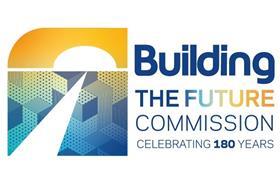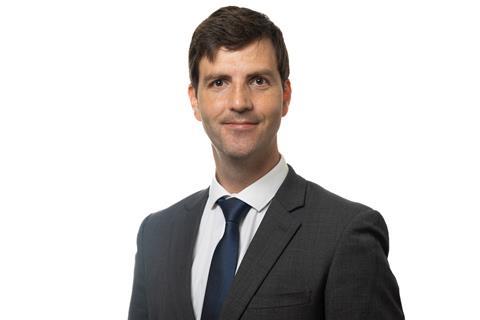The industry includes an impressive variety of roles – but unless you are on the inside it can be hard to know how to break in, let alone progress to the top. In this new series, we talk to professionals about their often surprising career twists and turns

How long have you been working and what is your current job?
I have been working for just over 15 years, although the majority of my time has been outside the construction industry. I am currently a chartered cost manager at Turner & Townsend alinea. I have been here for almost two years.

What were your first career ambitions? (Would your 16-year-old former self be surprised at what you’re doing now?)
My first career ambitions were to join the RAF as a pilot. I passed all the aptitude tests for selection but failed the medical as I am red-green colour blind. I graduated in the 2008 recession and ended up joining the police service. I would never have guessed I would end up where I am now or had the career I have enjoyed to date.
When did you first start thinking about a career in construction and why?
I have always enjoyed watching television programmes showing how mega structures are built. Being part of a team that now delivers these projects is really amazing.
After 10 years in the police, I had seen a lot and experienced both the best and worst sides of life. I wanted a career that would still challenge me mentally but provide variety. Working in the private sector also means I now have a greater work-life balance with weekends and Christmas off.
Who or what helped you get where you are today?
On a personal level, my wife and parents, without whose help and support I could not have made the career change. On a professional level, my current line manager. I am supported and given plenty of opportunities which has been transformational for my career over the past few years.
Did your choice of subjects/qualifications in education help or hinder you getting a job in the sector?
I think education in any form is always a worthwhile investment – if you learn, then its time well spent. I have a geography degree, which helps me to understand how we interact with the built and natural environment.
However, if you want to become a chartered surveyor it is important to complete a RICS accredited degree. I had to go back to university part-time and complete an MSc in quantity surveying.
Have you had to overcome any other barriers to get where you are today?
Definitely. Making a transition and having a career change was incredibly difficult. I applied to some well-known competitors who didn’t give me a chance or see the value in the transferable skills and life experience I had. It was initially very difficult as I had no experience in the construction industry.
What do you know now about the industry that you wish you knew when you were at school?
I wish I had known about all the different roles and opportunities that are out there in construction. As a naive teenager I would probably have only thought about the traditional trades on a building site. There are so many different careers and a world of opportunity within construction.
What surprised you about the industry as a new starter?
There is so much more to construction than you can ever imagine. We often take buildings and structures for granted and, unless you know about the monumental effort that goes into their construction from a large number of people, all pulling in the same direction, you don’t appreciate it.
What are the best and hardest bits of your job?
The best bit of my job is seeing a satisfied client at the conclusion of a job. Being a part of their project and knowing that they have had great client care gives me a real sense of pride.
Managing multiple projects and expectations can be difficult. However, I consider myself very lucky as I have a great team around me and we all pull together and help each other out. It’s vital to have a team around you who can provide support and help when it is needed, whatever role you are in.
For someone coming through the school system now, what advice do you have about choosing a construction-related career?
My advice to any young person is, “never say no”. Keeping your eyes open, taking opportunities and accepting challenges means you will experience new projects, work with different people and learn so much more.
It is a mentality that has served me well and I have worked on some fantastic projects as a result. It has also opened wider opportunities for my role, these being parametric cost modelling, developing an embodied carbon calculator and business generation.
What one thing would you change to make finding a career in the built environment sector easier?
Educating young people and students at an earlier age about the many different roles and opportunities there are within the built environment. The industry has a huge skills shortage, and it is important to engage with students at an earlier stage in their life about the possibilities.
The built environment faces some of the biggest global challenges from sustainability to improving health and safety on construction sites across the world. If we can excite students about such careers, then the routes to entry eventually become easier as market forces adapt.


























No comments yet